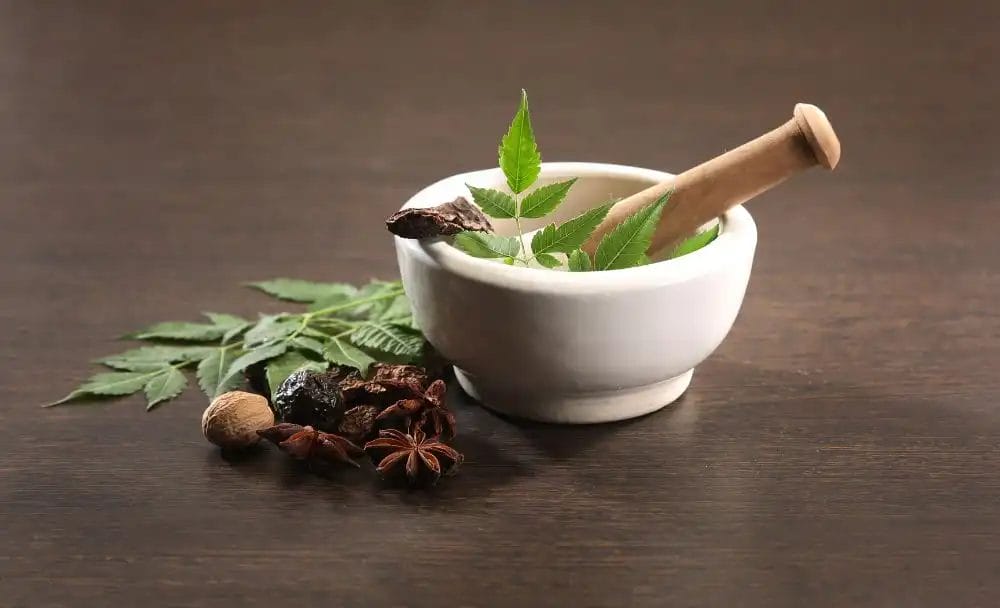This article is reviewed by an expert

Dysuria is a common urinary symptom characterised by pain, discomfort, or a burning sensation during urination. It can be caused by various underlying factors, such as infections, urinary tract abnormalities, or certain medical conditions. Ayurveda, the ancient Indian system of medicine, offers holistic approaches to managing dysuria by addressing the root cause of the condition. This article explores the symptoms, causes, diagnostic methods, treatment options, and preventive measures for dysuria from an Ayurvedic perspective.
Symptoms of Dysuria
- Pain or Burning Sensation
Dysuria is often accompanied by pain or a burning sensation during urination. This primary symptom is the hallmark of dysuria, indicating an underlying issue in the urinary system [1].
- Frequent Urination
Individuals with dysuria may experience an increased urgency to urinate frequently. This secondary symptom often accompanies the pain or discomfort during urination [1].
- Difficulty Initiating Urination
Some individuals may find it challenging to start or maintain the flow of urine. This primary symptom can cause further discomfort and frustration [1].
- Abnormal Urine Appearance
Dysuria can cause urine to appear cloudy, bloody, or have a foul odour. This secondary symptom indicates the presence of an underlying condition that needs attention [2].
- Pelvic Pain or Discomfort
In some cases, dysuria may be accompanied by pelvic pain or discomfort. This primary symptom can be localized to the lower abdomen or extend to the lower back.
Causes of Dysuria
- Urinary Tract Infections (UTIs)
Bacterial infections in the urinary tract, such as cystitis or urethritis, are common causes of dysuria. UTIs primarily affect the bladder, urethra, or kidneys [2].
- Sexually Transmitted Infections (STIs)
Infections like gonorrhoea or chlamydia can lead to painful urination. These infections are typically contracted through sexual contact [2].
- Urinary Stones
The presence of stones in the urinary tract can obstruct urine flow, causing dysuria. Stones can form in the kidneys, ureters, bladder, or urethra, leading to discomfort during urination [2].
- Bladder or Urethral Abnormalities
Conditions like bladder inflammation, interstitial cystitis, or urethral stricture can cause painful urination. These primary causes often result from structural abnormalities or inflammation in the urinary system [2].
- Prostatitis
Inflammation of the prostate gland can result in dysuria in men. Prostatitis can be acute or chronic and requires appropriate treatment for symptom relief [2].
- Vaginal Infections
Infections in the vaginal area, such as yeast infections or bacterial vaginosis, can cause discomfort during urination in women. These secondary causes may require specific treatments to address the underlying infection [2].
Diagnostic Methods for Dysuria
- Medical History and Physical Examination
A healthcare professional will gather information about the individual’s medical history, including any previous urinary tract infections or related conditions. A physical examination will be conducted to assess pain, range of motion, and signs of inflammation [3].
- Urinalysis
Urine samples may be analyzed to check for the presence of bacteria, blood cells, or other indicators of infection or inflammation [3].
- Imaging Tests
In some cases, imaging tests such as ultrasound, computed tomography (CT) scans, or magnetic resonance imaging (MRI) may be performed to evaluate the urinary tract for structural abnormalities or stones [2].
- Cystoscopy
A cystoscope, a thin tube with a camera, may be used to visualize the inside of the urethra and bladder for any abnormalities [3].
Treatment of Dysuria

- Ayurvedic Medications
Ayurvedic formulations, including herbal remedies and decoctions, can be prescribed to reduce inflammation, relieve pain, and promote urinary system health. Some commonly used herbs in Ayurvedic treatment for dysuria, which is described as Mutrakriccha include Gokshura (Tribulus terrestris), Chandraprabha Vati, and Punarnava (Boerhavia diffusa) [4, 5, 6].
- Dietary Modifications
Following an anti-inflammatory diet and avoiding spicy, acidic, or irritating foods can help alleviate dysuria symptoms. Increasing water intake and consuming foods that support urinary health, such as cucumber, watermelon, and coconut water, is also beneficial.
- Lifestyle Changes
Maintaining good hygiene, avoiding holding urine for prolonged periods, and practising safe sexual habits can help prevent infections and reduce the risk of dysuria [3]. Stress management techniques and regular exercise can also contribute to overall urinary system health.
- Hot Water Fomentation: Applying a warm compress or taking a warm sitz bath can provide temporary relief from dysuria symptoms. The warmth helps soothe inflammation and reduce discomfort.
- Medical Interventions: In severe cases or when the underlying cause of dysuria requires immediate attention, medical interventions such as antibiotic therapy, anti-inflammatory medications, or surgical procedures may be recommended. These interventions aim to address specific conditions causing dysuria [2].
Preventive Measures for Dysuria
- Hydration
Drinking an adequate amount of water and staying hydrated helps flush out toxins and maintain urinary system health.
- Personal Hygiene
Maintaining good personal hygiene, especially in the genital area, can help prevent the spread of infections and reduce the risk of dysuria.
- Safe Sexual Practises
Practising safe sexual habits, including using condoms and regular sexual health check-ups, can reduce the risk of sexually transmitted infections that may cause dysuria.
- Prompt Treatment of Infections
Seeking timely medical attention and treating urinary tract infections or other related conditions promptly can prevent complications and recurring episodes of dysuria.
Conclusion
Dysuria, with its painful and discomforting symptoms, can significantly affect an individual’s daily life. Ayurveda offers a holistic approach to managing dysuria by addressing the underlying causes, reducing inflammation, and promoting urinary system health. Along with Ayurvedic medications, dietary modifications, lifestyle changes, and preventive measures play a vital role in preventing dysuria and promoting overall well-being. If you experience persistent or severe dysuria symptoms, it is essential to consult with an Ayurvedic practitioner or healthcare professional for a proper diagnosis and personalized treatment plan.
FAQs
- What is dysuria?
Dysuria refers to the painful or uncomfortable sensation during urination.
- What are the common causes of dysuria?
Common causes of dysuria include urinary tract infections, sexually transmitted infections, urinary stones, bladder or urethral abnormalities, prostatitis, and vaginal infections.
- How is dysuria diagnosed?
Diagnosis involves a physical examination, evaluation of medical history, urinalysis, and sometimes imaging tests like ultrasound or cystoscopy.
- Can dysuria be prevented?
Practising good hygiene, staying hydrated, maintaining a healthy diet, and avoiding irritants can help prevent dysuria.
Disclaimer: The information provided here is for general information and not meant to substitute any medical advice. Please consult your doctor for appropriate medical consultation.
References:
- https://www.ncbi.nlm.nih.gov/books/NBK291/
- https://medlineplus.gov/ency/article/003145.htm
- https://www.ncbi.nlm.nih.gov/books/NBK549918/
- https://ijapr.in/index.php/ijapr/article/view/885
- https://jrasccras.com/article.asp?issn=2456-5601;year=2023;volume=7;issue=2;spage=120;epage=124;aulast=Suhail;type=3
- https://journals.lww.com/mtsm/Fulltext/2022/06010/Ayurveda_and_Dysuria.6.aspx
















